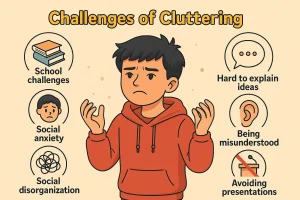Top Communication Mistakes Couples Make and How to Fix Them
By Wellness Hub
Last Updated: September 13, 2024
In any relationship, communication acts as the lifeblood that maintains the connection between partners. Effective communication not only deepens understanding and strengthens bonds but also helps navigate the complex emotional landscapes we share with our significant others. Unfortunately, even the most loving couples can stumble into common communication pitfalls that, if not addressed, can lead to misunderstandings and conflicts that strain the relationship.
Many couples find themselves repeating the same communication mistakes without realizing their impact. These include failing to really listen to each other, avoiding difficult conversations, or letting technology interfere with genuine interaction. Identifying these mistakes is the first step towards transforming your communication patterns. By learning and applying simple, effective strategies, couples can enhance their dialogue, foster deeper empathy, and build a more resilient partnership.
Book Your Marriage Counselling Now
Identifying Communication Mistakes
Poor Listening Skills
Listening is more than just hearing the words spoken by your partner—it’s about truly understanding their feelings, thoughts, and needs. Unfortunately, many couples fall into the habit of passive listening, where they might hear the words but fail to absorb the emotional content or deeper meanings. This can lead to feelings of neglect and misunderstanding, eroding trust and intimacy over time.
Tips for Active Listening:
- Give Full Attention: Put away distractions like phones or laptops. Make eye contact and show that you are fully engaged.
- Reflect and Clarify: Repeat back what you’ve heard in your own words, asking for clarification to ensure you’ve understood correctly.
- Respond Appropriately: Acknowledge the emotions behind the words, not just the words themselves, which can make your partner feel truly heard and valued.
Assuming Instead of Asking
Assumptions are quicksand in communication; they can quickly drag a conversation into conflict. When we assume we know what our partner thinks or feels, we’re often acting on incomplete or incorrect information, which can lead to misinterpretations and arguments.
How to Cultivate a Habit of Asking Questions:
- Stay Curious: Approach conversations with a mindset of learning about your partner, as if you’re hearing these thoughts for the first time.
- Ask Open-Ended Questions: Encourage a deeper dialogue by asking questions that require more than a yes or no answer.
- Validate Their Responses: Show appreciation for their openness, which can encourage further sharing and strengthen your connection.
Avoiding Difficult Conversations
While it might seem easier to avoid discussing uncomfortable topics, doing so can actually compound problems. Avoidance can lead to unresolved issues simmering beneath the surface, increasing stress and detachment within the relationship.
Strategies for Approaching Sensitive Topics:
- Choose the Right Time and Place: Ensure both partners are in a calm state and have the time to dedicate to a serious conversation without interruptions.
- Use ‘I’ Statements: Speak from your perspective without blaming or criticizing. For example, “I feel upset when…” instead of “You always make me upset because…”
- Agree to Take Breaks: If the conversation becomes too heated, agree to pause and revisit the topic when both partners are calmer.
Also Read: 8 Relationship Tips That Couples Often Forget
The Effects of Technology on Communication
Overuse of Digital Communication
In today’s connected world, it’s easy to default to texting, social media, and emails as primary communication tools. While these platforms offer convenience and instant connectivity, they often lack the depth and emotional resonance of face-to-face interactions. Overreliance on digital communication can lead to a superficial connection where important non-verbal cues like tone, facial expressions, and body language are missed. This gap can foster misunderstandings and feelings of detachment within relationships.
Balancing Digital and Face-to-Face Communication:
- Prioritize Quality Time: Make a conscious effort to spend quality time together without screens. Set aside specific times for undistracted conversation to strengthen your emotional connection.
- Designate ‘Phone-Free’ Zones: Establish certain areas or times, such as during meals or in the bedroom, where digital devices are not allowed, encouraging more personal interaction.
- Combine Communication Methods: Use digital tools to enhance rather than replace face-to-face interactions. Send a loving message or an interesting article to share as a conversation starter when you next meet.
Misinterpretations Online
Digital communication strips away much of the context we take for granted in personal interactions, leading to frequent misinterpretations. A text message can be read in many tones and often does not convey the sender’s emotional state. This can result in assumptions and conflicts that could have been easily avoided in person.
Common Misunderstandings and How to Avoid Them:
- Clarify Intentions: When in doubt about a message’s tone or content, ask for clarification before reacting. This simple step can prevent many unnecessary misunderstandings.
- Use Emoticons Wisely: While not suitable for every conversation, emotions can help convey tone and intent in casual exchanges, adding a layer of emotional clarity.
- Reflect Before Sending: Take a moment to reread your messages before sending them to ensure they clearly and effectively communicate your thoughts and feelings.
Importance of Tone and Context in Digital Communication
Understanding that digital messages often lack nuance, it’s crucial to be mindful of how something might be read. When discussing important or sensitive topics, consider a phone call or video chat instead of texting. This approach allows for real-time feedback and a more genuine exchange, reducing the risk of miscommunication.
Emotional Barriers to Effective Communication
Letting Emotions Control the Conversation
Emotions play a significant role in communication, especially in intimate relationships. However, when emotions override the ability to listen and respond thoughtfully, conversations can quickly escalate into conflicts. High emotional states, such as anger or frustration, can cloud judgment and lead to saying things that may be regretted later.
Techniques for Managing Emotions Before and During Conversations:
- Pause Before Responding: When emotions flare, take a brief pause. A simple breath or a moment of silence can prevent an impulsive reaction.
- Identify and Express Emotions: Recognize and articulate your feelings. Saying “I feel frustrated” instead of lashing out allows your partner to understand your emotional state without feeling attacked.
- Seek to Understand First: Before trying to be understood, make an effort to understand your partner’s perspective. This approach can diffuse tension and lead to more constructive dialogue.
Lack of Vulnerability
Vulnerability is the cornerstone of trust and intimacy in a relationship. Many couples struggle with being vulnerable due to fear of judgment or rejection. However, shielding true feelings can prevent genuine connection and hinder effective communication.
The Role of Vulnerability in Building Trust
Opening up about fears, failures, and insecurities can seem daunting, but it invites your partner to connect with your true self. This openness fosters trust and shows that you value the relationship enough to be honest about your feelings and experiences.
Encouraging Openness and Honesty in Communication:
- Create a Safe Space: Assure your partner that their feelings and thoughts are valid and important. Mutual respect and a non-judgmental attitude can make it easier to share openly.
- Share First: Take the lead by sharing something personal. This act can set a precedent and encourage your partner to reciprocate with their own thoughts and feelings.
- Respond with Empathy: When your partner is vulnerable, respond with empathy and understanding, not criticism. This response reinforces that it’s safe to share deeply and honestly.
Practical Tips to Improve Communication
Developing Empathy
Empathy is the ability to understand and share the feelings of another, a crucial element in any relationship. Developing empathy can dramatically improve how you communicate because it helps you see things from your partner’s perspective, reducing conflicts and deepening emotional connections.
Exercises to Enhance Understanding and Empathy:
- Active Listening: Focus entirely on your partner’s words and feelings. Try to understand their perspective without preparing your response.
- Role Reversal: Switch roles in a situation to see how the other might feel. Discuss the insights you gain from this exercise.
- Share Emotional Stories: Regularly share experiences that evoked strong emotions in each of you. This builds a deeper emotional understanding and connection.
Establishing Regular Check-ins
Consistent communication is key to maintaining a healthy relationship. Regular check-ins allow couples to clear up small misunderstandings before they turn into larger issues and ensure that both partners feel heard and valued.
How Regular, Structured Conversations Can Help Maintain Clear Communication:
- Schedule Regular Meetings: Set a regular time each week to discuss various aspects of your relationship without distractions.
- Discuss Ongoing Issues and Successes: Use this time to talk about things that are going well and areas that need improvement.
- Set Goals Together: Use these sessions to set personal and relationship goals, enhancing teamwork and alignment.
Using ‘I’ Statements
Communication can easily become accusatory, especially during disagreements. Using “I” statements helps frame concerns from your perspective, reducing the likelihood of the other person becoming defensive.
The Importance of Framing Concerns Without Blaming:
- Express Your Feelings Clearly: Start sentences with “I feel,” “I think,” or “I need,” instead of “You make me feel” or “You always do.”
- Describe the Behavior, Not the Person: Talk about specific actions or situations rather than generalizing the other’s character.
- Specify the Outcome You Desire: After stating your feelings and describing the behavior, explain what change you would like to see.
Techniques for Effective Communication
| Technique | Description | Benefits |
|---|---|---|
| Active Listening | Fully focusing on your partner while they speak without preparing to respond immediately. | Enhances understanding and shows genuine interest in the partner. |
| Using ‘I’ Statements | Express feelings and thoughts starting with ‘I’ instead of ‘you’ to avoid blame. | Reduces defensiveness and focuses on personal feelings. |
| Regular Check-ins | Scheduled discussions to review relationship status and address issues. | Keeps communication clear and prevents misunderstandings. |
| Emotional Check-ins | Asking about and sharing current emotional states to gauge the right time for discussions. | Helps manage the emotional climate of conversations. |
| Clarifying Questions | Asking open-ended questions to ensure understanding and clarify points. | Prevents assumptions and deepens understanding. |
Fixing Communication Mistakes
Apologizing and Forgiving
One of the most profound ways to mend communication breakdowns in a relationship is through the power of apology and forgiveness. Effective apologies acknowledge the hurt caused and demonstrate remorse, not just for the action but for its impact on the other person. Forgiveness, on the other hand, is about letting go of grudges and resentments, creating space for healing and rebuilding trust.
The Power of Apology and Forgiveness in Healing Communication Breakdowns:
- Be Sincere: Your apology should be heartfelt and reflect genuine remorse. Acknowledge the specific actions you regret and their impact on your partner.
- Forgive to Move Forward: Forgiveness isn’t about forgetting or excusing the behavior; it’s about freeing yourself from the burden of bitterness. Discuss what each of you can learn from the experience and how you can prevent future issues.
- Commit to Change: Apologies and forgiveness should lead to positive changes in behavior. Talk about how both of you can make constructive adjustments to avoid repeating the same mistakes.
Seeking Professional Help
Sometimes, despite the best efforts, couples may find it difficult to resolve communication issues on their own. In such cases, seeking professional help from a therapist or counselor can be a valuable step. These professionals can provide neutral ground for discussions, teach effective communication techniques, and help explore deeper issues that might be impacting the relationship.
When and How to Seek Counseling for Communication Issues:
- Recognize the Signs: If you find yourselves having the same arguments repeatedly, or if discussions frequently turn into conflicts, it might be time to consider counseling.
- Choose the Right Therapist: Look for a therapist specializing in couples’ therapy or relationship counseling. It’s important that both partners feel comfortable with the therapist’s approach and personality.
- Be Open to the Process: Effective therapy requires honesty and openness. While it can be challenging, being willing to engage fully and transparently can lead to significant breakthroughs in communication.
Conclusion
Effective communication is the cornerstone of any thriving relationship. By addressing common pitfalls like poor listening and emotional reactions, couples can foster a deeper understanding and stronger bond. Remember, the path to better communication requires continuous effort and openness to change. Encourage one another to grow and improve in how you connect and express yourselves. For more expert tips and personalized support, visit Wellness Hub. Let us guide you in nurturing a resilient and loving relationship. We are committed to helping you build a foundation of strong, clear communication that lasts.
Frequently Asked Questions:
1. What are the most common communication mistakes couples make?
Couples often struggle with poor listening, making assumptions, avoiding difficult conversations, letting emotions dominate discussions, and overusing digital communication. Addressing these issues is crucial for improving understanding and intimacy.
2. How can couples improve their listening skills?
Active listening is key. This means fully focusing on your partner while they speak, avoiding distractions, and reflecting on what is said. It’s important to listen to understand, not just to respond.
3. What techniques help manage emotions during a conversation?
To manage emotions effectively, take a moment to breathe and think before responding, especially when discussions get heated. Identifying and openly discussing emotions can also help in understanding each other better and resolving conflicts.
4. Why is vulnerability important in communication?
Vulnerability helps build trust and deepen connections. When partners openly share their feelings, fears, and desires, it encourages a supportive and understanding relationship environment.
5. How often should couples have check-ins about their relationship?
Regular check-ins, such as weekly or bi-weekly, can significantly enhance communication. These sessions should be a dedicated time to discuss relationship health, celebrate successes, and address any concerns.
6. When should couples consider seeking professional help for communication issues?
If recurring arguments, unresolved conflicts, or feelings of resentment persist despite efforts to improve communication, it may be beneficial to seek counseling. A professional can offer neutral guidance and teach effective communication strategies tailored to the couple’s needs.
7. Can digital communication affect a relationship negatively?
Yes, overreliance on texting, social media, and emails can lead to misunderstandings and a lack of emotional depth. Balancing digital interactions with face-to-face communication is crucial for maintaining a healthy relationship.
8. What are some effective ways to approach difficult conversations?
Start by choosing the right time and place, ensuring both partners are calm and ready to engage. Use “I” statements to express your feelings without blaming, and be open to taking breaks if the conversation becomes too intense.
9. How can couples prevent assumptions in communication?
Couples can prevent assumptions by always asking clarifying questions and discussing their thoughts openly. Maintaining curiosity and never assuming you know your partner’s thoughts or feelings is key.
10. What role does empathy play in resolving communication conflicts?
Empathy allows partners to understand each other’s perspectives and emotions, reducing conflicts and enhancing connection. Exercises like active listening and sharing emotional experiences can help develop empathy in a relationship.
About the Author:
Prapoorna Mangalampalli
M.Sc., M.A., (Dual Masters in Psychology & English) – Counselor (6+ years of experience)
Prapoorna, with dual Master’s degrees in Psychology and English and over 6 years of experience, elevates human experiences through insightful counseling. She excels in online, marital, relationship, child, family, and career counseling. At Wellness Hub, she thrives in a team environment, valuing innovation, compassion, and client success.
Book your Free Consultation Today
Parent/Caregiver Info:
Client’s Details:
* Error Message









